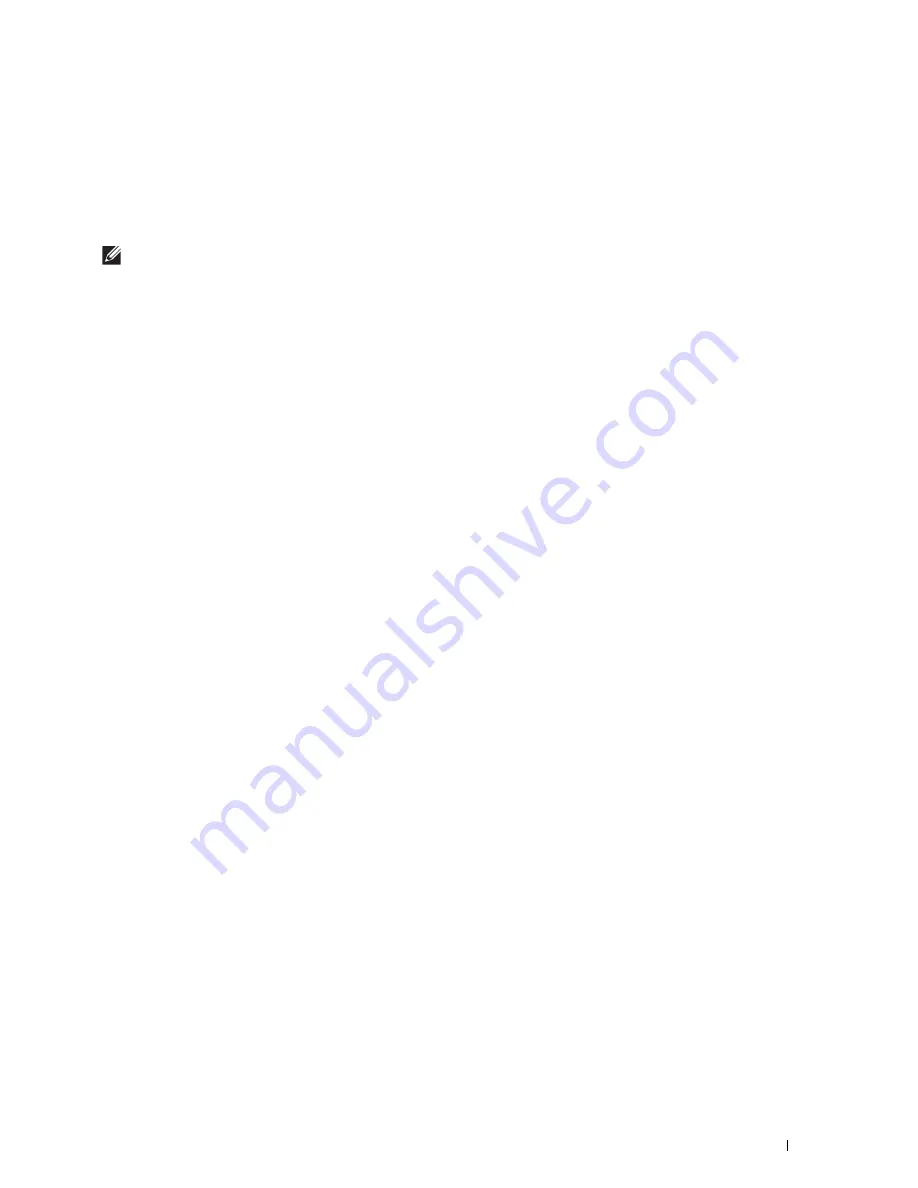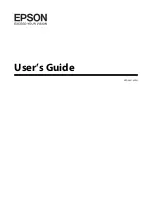
Print Media Guidelines
263
16
Print Media Guidelines
Print media refers to paper, labels, envelopes, and coated paper among others. Your printer provides high-quality
printing on a variety of print media. Selecting the appropriate print media for your printer helps avoid printing
troubles. This section describes selecting and caring for print media.
NOTE:
Use only laser print media. Do not use ink jet paper in your printer.
Paper
For the best print quality, use 90 g/m
2
(24 lb) xerographic, grain long paper. It is recommended that you try a sample
first before buying large quantities of any print media.
When loading paper, identify the recommended print side on the paper package, and load the paper accordingly. See
"Loading Print Media in Tray1 and the Optional 550-Sheet Feeder" and "Loading Print Media in the MPF" for
detailed loading instructions.
Recommended Paper
To ensure the best print quality and feed reliability, use 75 g/m
2
(20 lb) xerographic paper. Business paper designed
for general business use also provides acceptable print quality. Only use paper able to withstand high temperatures
without discoloring, bleeding, or releasing hazardous emissions. The laser printing process heats paper to high
temperatures. Check with the manufacturer or vendor to determine whether the paper you have chosen is
acceptable for laser printers.
It is recommended that you try a sample first before buying large quantities of any print media. When choosing any
print media, you should consider the weight, fiber content, and color.
Unacceptable Paper
The following paper types are not recommended for use with the printer:
• Chemically treated paper used to make copies without carbon paper, also known as carbonless paper, carbonless
copy paper (CCP), or no carbon required (NCR) paper.
• Preprinted paper with chemicals that may contaminate the printer.
• Preprinted paper that can be affected by the temperature in the fusing unit.
• Preprinted paper that requires a registration (the precise print location on the page) greater than ±0.09 inches,
such as optical character recognition (OCR) forms.
In some cases, you can adjust registration with your software program to successfully print on these forms.
• Coated paper (erasable bond), synthetic paper, and thermal paper.
• Rough-edged, rough or heavily textured surface paper, or curled paper.
• Recycled paper containing more than 25 % post-consumer waste that does not meet DIN 19 309.
• Multiple-part forms or documents.
• Print quality may deteriorate (blank spaces or blotches may appear in the text) when printing on talc or acid paper.
Summary of Contents for H815dw
Page 2: ......
Page 24: ...24 Contents Template Last Updated 2 7 2007 ...
Page 26: ...26 ...
Page 30: ...30 Notes Cautions and Warnings ...
Page 38: ...38 Product Features ...
Page 44: ...44 About the Printer ...
Page 46: ...46 ...
Page 48: ...48 Overview of the Printer Setup ...
Page 86: ...86 Loading Paper ...
Page 100: ...100 Installing Printer Drivers on Windows Computers ...
Page 104: ...104 Installing Printer Drivers on Macintosh Computers ...
Page 114: ...114 ...
Page 180: ...180 Dell Printer Configuration Web Tool ...
Page 282: ...282 ...
Page 316: ...316 Copying ...
Page 344: ...344 Scanning For Apple Macintosh Password for Scanner Enter the password ...
Page 380: ...380 Dell Document Hub ...
Page 386: ...386 ...
Page 404: ...404 Understanding Your Printer Software ...
Page 424: ...424 Using Digital Certificates ...
Page 434: ...434 Understanding Printer Messages ...
Page 440: ...440 Specifications ...
Page 441: ...441 Maintaining Your Printer 31 Maintaining Your Printer 443 32 Clearing Jams 469 ...
Page 442: ...442 ...
Page 468: ...468 Maintaining Your Printer ...
Page 476: ...476 Clearing Jams 8 Insert the MPF into the printer 9 Close the rear cover ...
Page 499: ...499 Troubleshooting 33 Troubleshooting Guide 501 ...
Page 500: ...500 ...
Page 530: ...530 Troubleshooting Guide ...
Page 531: ...531 Appendix Appendix 533 ...
Page 532: ...532 ...
















































